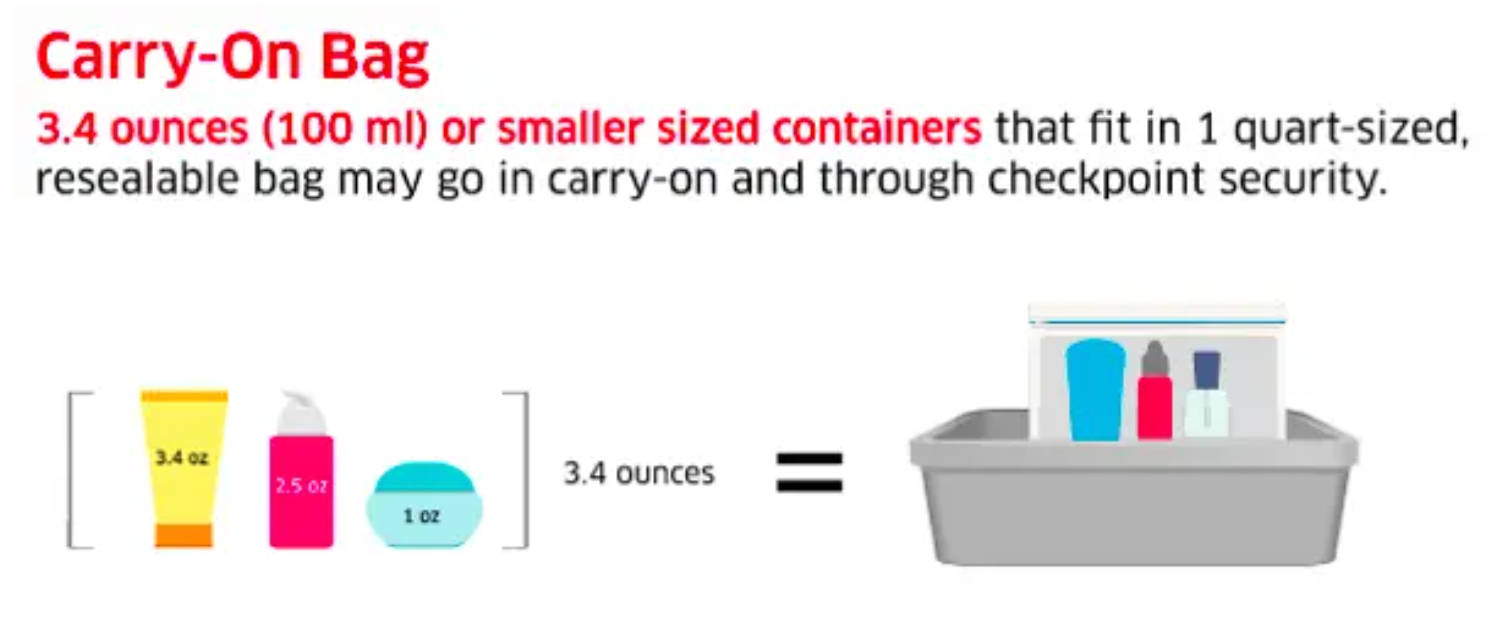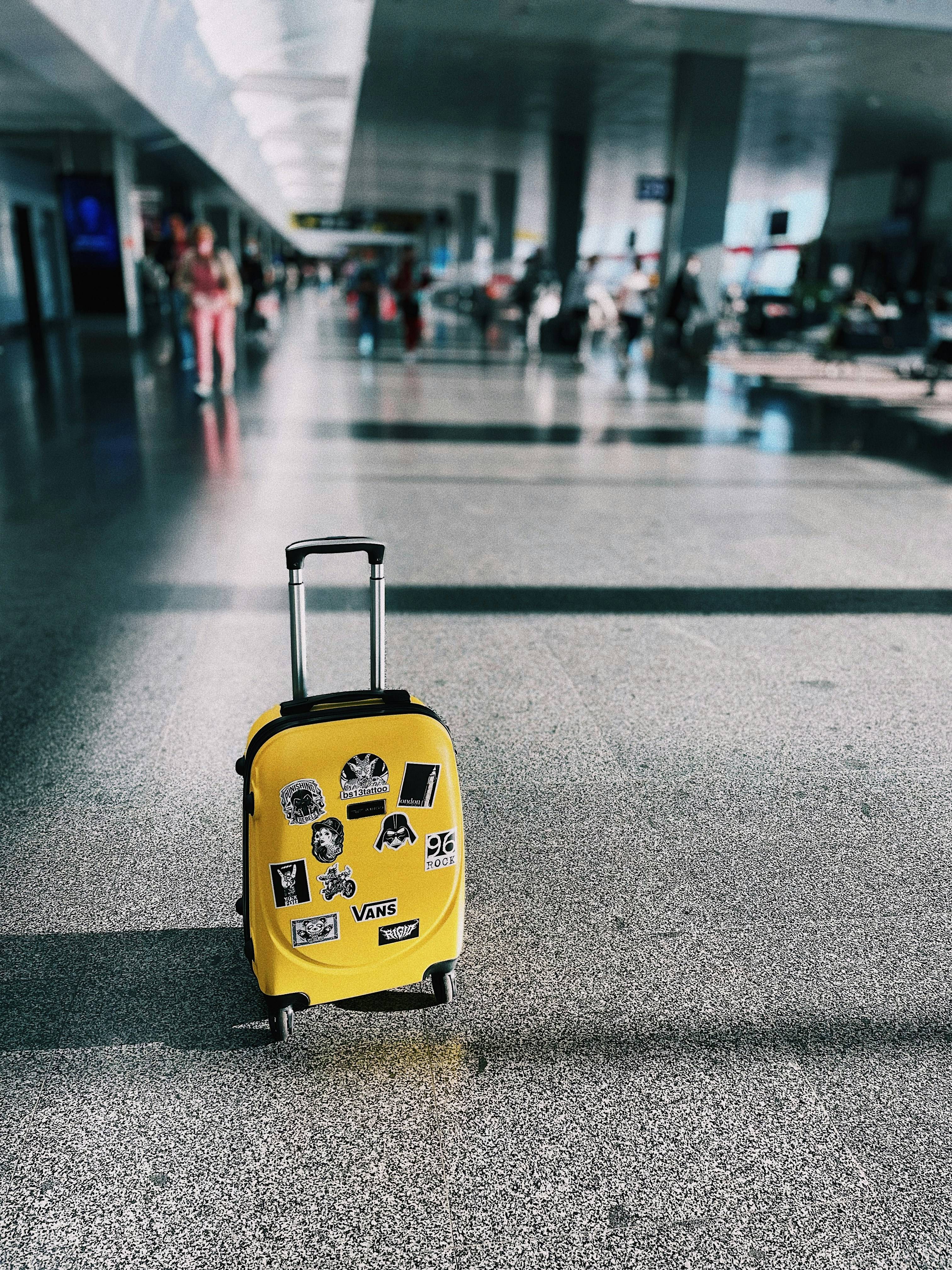What You Can (and Can’t) Bring Aboard
To avoid any unpleasant delays when going through airport security, it is very important to know the carry-on luggage regulations for the airline you are traveling with. So before you print your boarding pass, it’s important to conduct a bit of research on the carry-on luggage you have.
Though carry-on rules may vary depending on the airline you are flying with, generally, most of the rules are the same for all airlines.
VIDEO:Are you unsure about what needs to be removed from your carry-on for airport security screening? This video, "AskTSA: Preparing Carry-on Bags for Security Screening," was a game-changer for me on my last trip. It provided clear, concise instructions on how to prepare my items, making the security process smoother and less stressful. From knowing which electronics to take out to understanding the 3-1-1 liquid rule, this video covers it all. Watch it now to make your next airport experience hassle-free!
What Is Allowed In A Carry-On Bag On Most Airlines?
What you can carry in your carry-on bag is regulated by both aviation authorities and air carriers. In addition to rules that apply to checked bags, there are many other items you must consider when packing your carry-on luggage. Here are the things that you can pack:
Liquids
You can only carry liquid up to 100 ml (3.4 ounces) in your carry-on bag. This includes water, makeup remover, perfume, hair wax, liquid soaps, sanitizer, and creams. All liquids must fit into a single quart-sized, clear, resealable bag (commonly known as the 3-1-1 rule).
Certain duty-free liquids are allowed in your carry-on if packed in a security tamper-evident bag. If you’re traveling with liquids or are unsure about any item, please visit the TSA website or contact TSA to know if you can carry that in your carry-on.
Tip: Be sure to get a status of your flight before leaving for the airport
Medicines
If a doctor prescribes a liquid medicine that is necessary for you, then the liquid limit can exceed 100 ml (3.4 ounces). You can also take insulin pumps and syringes in your carry-on bag. However, all medicines should pass the screening process at the airport.
Batteries and Electronics
You can pack dry batteries in your carry-on bags. For electronics, you can carry small and portable electronic items, including a standard-size laptop, cell phones, and tablets. Make sure to check the specific rules of your carrier to avoid having to throw anything away at the gate.
Items That are Not Allowed In Carry-On Luggage
Here is a partial list of items that you cannot take in a carry-on bag.
Sharp objects
You cannot carry sharp objects like box cutters, ice axes, knives, meat cleavers, razor-type blades, and large scissors in your carry-on bag.
Large quantities of alcohol
You may carry on alcoholic beverages in 3.4-ounce bottles that fit into a carry-on bag. Any larger quantities must be in checked luggage and must comply with regulations regarding alcohol content.
Chemicals
Do not carry any kind of chemicals, including chlorine, bleach, spillable batteries, and spray paint, while traveling through airlines.
Weapons or Ammunition
For reasons that are probably obvious, weapons of any sort are not permitted in the aircraft cabin. If you really want to bring your prized hunting knife, it will need to go in your checked baggage.
For more information about acceptable and unacceptable items in carry-on baggage, visit the TSA website.
Airline-Specific Carry-On Policies
To ensure a smooth travel experience, it is essential to familiarize yourself with the carry-on policies of the airline you are flying with. Here is a summary of carry-on policies for some major airlines:
American Airlines
American Airlines allows one carry-on bag and one personal item per passenger. The carry-on bag's dimensions must not exceed 22 x 14 x 9 inches, including handles and wheels. The personal item, such as a purse or small backpack, must fit under the seat in front of you. There are no weight restrictions for carry-on bags on most flights, but it is always a good idea to check your specific flight details on the American Airlines carry-on policy page.
Delta Airlines
Delta Airlines permits one carry-on bag and one personal item. The carry-on bag should fit in the overhead bin and must not exceed 22 x 14 x 9 inches. Personal items like purses, briefcases, and laptop bags must fit under the seat in front of you. For more details, visit the Delta carry-on baggage page.
United Airlines
United Airlines' carry-on policy allows one carry-on bag and one personal item per passenger. The carry-on bag's dimensions, including handles and wheels, must not exceed 22 x 14 x 9 inches. The personal item should fit under the seat in front of you. Additional information can be found on the United Airlines carry-on baggage page.
Southwest Airlines
Southwest Airlines allows one carry-on bag and one personal item per passenger. The carry-on bag must fit in the overhead bin and not exceed 24 x 16 x 10 inches. The personal item, such as a laptop bag or small backpack, should fit under the seat in front of you. Check the Southwest Airlines carry-on baggage page for more details.
JetBlue Airways
JetBlue Airways allows one carry-on bag and one personal item. The carry-on bag must fit in the overhead bin and not exceed 22 x 14 x 9 inches. Personal items, such as a purse or laptop bag, must fit under the seat in front of you. For additional information, visit the JetBlue carry-on baggage page.
Spirit Airlines
Spirit Airlines charges for carry-on bags but allows one personal item for free. The personal item must fit under the seat in front of you and not exceed 18 x 14 x 8 inches. If you choose to bring a carry-on bag, it must fit in the overhead bin and not exceed 22 x 18 x 10 inches. For more information, visit the Spirit Airlines carry-on baggage page.
FAQ: What You Can (and Can’t) Bring Aboard
Find more help here for your journey through the airport



